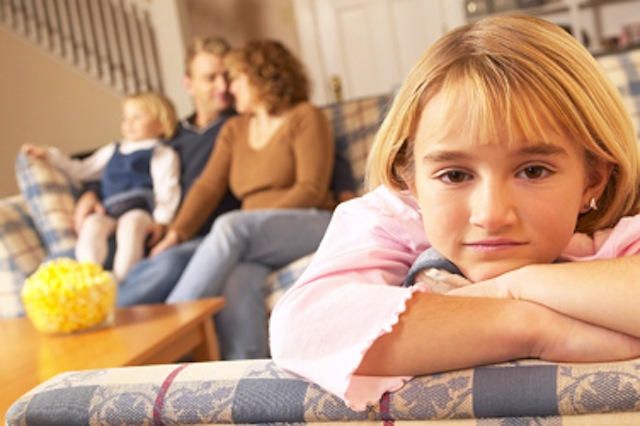It’s easy to say that parents should never play favorites.? But if we’re honest, it’s a lot harder in practice.
We are all someone’s kid, and many of us are someone’s parent.? In at least one of those roles most of us have experienced favoritism – either showing it, or experiencing it as a sibling.? It’s not that we don’t love all of our kids, or that our parents didn’t love all of theirs.
For a moment, let’s assume love is not the issue. ?Sometimes though, we simply mesh better with some than with others and we find ourselves gravitating towards that person.
Favoring, in this case having a preference for one child over another, may actually be a reality which we cannot change.? The bigger challenge may be that in our discomfort about that reality, we deny it, and end up failing to deal with it with the greatest possible degree of health.
One way to deal with the human propensity for favoritism, if not eliminate it altogether, is by honestly confronting its source, which is not the child for whom we show a degree of preference.? The source is us, the ones showing the favoritism, not the child to whom it is shown.
Imagine if we stopped trying to justify, to ourselves or our kids or anyone else, whatever favoritism we show.? Imagine that we admitted that it is not primarily a function of who they are, but instead they meet a particular need in us.? Imagine that when we realized we are playing favorites, rather than denying it or justifying it, we simply admitted that it was a reflection of us, not them.
This approach will not, at least in the short term, end favoritism, but it will help us take responsibility for it, and, even more importantly, help us to keep from confusing a preference for one kid, with the unconditional love which all kids need, even if we don’t like them all equally at any particular moment.

Listed for many years in Newsweek as one of America’s “50 Most Influential Rabbis” and recognized as one of our nation’s leading “Preachers and Teachers,” by Beliefnet.com, Rabbi Brad Hirschfield serves as the President of Clal–The National Jewish Center for Learning and Leadership, a training institute, think tank, and resource center nurturing religious and intellectual pluralism within the Jewish community, and the wider world, preparing people to meet the biggest challenges we face in our increasingly polarized world.
An ordained Orthodox rabbi who studied for his PhD and taught at The Jewish Theological Seminary, he has also taught the University of Pennsylvania, where he directs an ongoing seminar, and American Jewish University. Rabbi Brad regularly teaches and consults for the US Army and United States Department of Defense, religious organizations — Jewish and Christian — including United Seminary (Methodist), Yeshivat Chovevei Torah (Modern Orthodox) Luther Seminary (Lutheran), and The Jewish Theological Seminary (Conservative) — civic organizations including No Labels, Odyssey Impact, and The Aspen Institute, numerous Jewish Federations, and a variety of communal and family foundations.
Hirschfield is the author and editor of numerous books, including You Don’t Have To Be Wrong For Me To Be Right: Finding Faith Without Fanaticism, writes a column for Religion News Service, and appears regularly on TV and radio in outlets ranging from The Washington Post to Fox News Channel. He is also the founder of the Stand and See Fellowship, which brings hundreds of Christian religious leaders to Israel, preparing them to address the increasing polarization around Middle East issues — and really all currently polarizing issues at home and abroad — with six words, “It’s more complicated than we know.”

